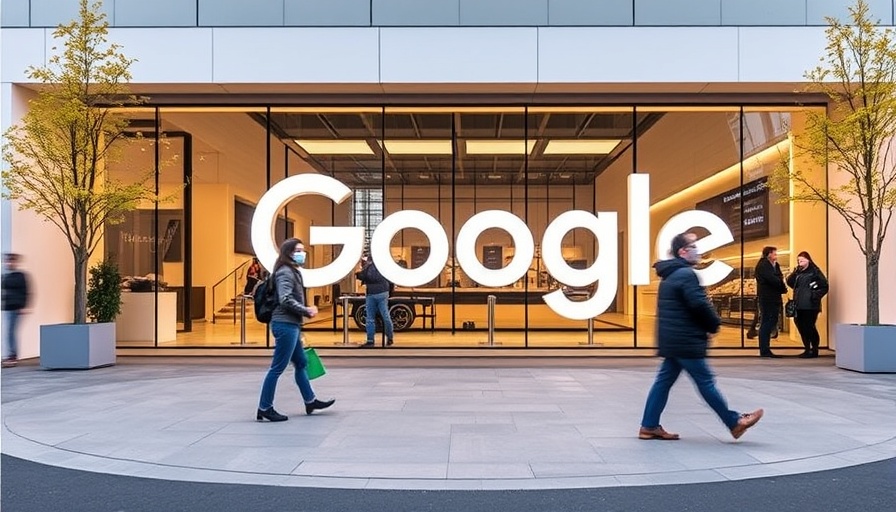
Google's Market Performance Amid Controversy
Alphabet is buzzing with excitement, announcing a whopping $90 billion in revenue during Q1 of 2025, translating into a staggering $34.5 billion in net income, marking a 46% increase year over year. However, the company is cautiously sidestepping mounting criticisms related to antitrust issues—a significant topic that emerged just a week prior, declaring Google an illegal monopolist in online advertising.
Despite the grim headlines surrounding legal challenges, Google chose to focus its Q1 earnings call on the promising developments in artificial intelligence (AI). Google's ad network may have seen a slight downturn in revenue, but core segments like Google Search and Google Cloud compensated with multibillion-dollar gains. The narrative crafted by executives was clear: AI is the future, one that they are determined to lead.
The AI Revolution: More Than Just Numbers
The true star of the earnings call was Google's AI Overviews (AIOs), the generative responses that embellish search queries. CEO Sundar Pichai reported these AIOs boast an impressive 1.5 billion users monthly—though the metrics around this number remain hazy. The real question for investors is: what does this figure mean for monetization? Despite claims that these AIOs monetize at a rate comparable to traditional search results, lack of clarity on click-through rates demands further scrutiny.
Furthermore, Pichai emphasized the integration of Gemini models across the majority of their products, from tablets to smart devices, suggesting that Google’s commitment to AI development continues unabated. Each product upgraded could serve as a foundational step in enhancing brand engagement—making this topic incredibly relevant for business owners focused on scaling and customer acquisition.
Why Ignoring Controversies Matters
Why would Google choose to sidestep discussions on antitrust issues or its recent reversal on third-party cookie policies? One perspective might highlight a strategic approach to maintain investor confidence amidst potential backlash. For business leaders, especially those generating between $2M to $10M in revenue, understanding this dynamic is crucial—it’s essential not to get sidetracked by controversies but to keep an eye on how such shifts in the tech industry can affect demand generation and branding efforts.
Key Takeaway: Skills for the Future
While Google dazzles the audience with AI projections, B2B businesses must develop customer acquisition strategies that will weather any storm—including industry interruptions or legal disputes. This is a wake-up call for all of us in the digital space: invest in AI and adapt traditional marketing strategies to incorporate data-driven insights. With AI integration on the rise, businesses need to pivot quickly, employing smart branding and lead generation techniques to stay ahead in a rapidly evolving landscape.
As you navigate your journey in an increasingly AI-dominated market, consider how Google’s strategic choices reflect a larger trend that you, too, can capitalize on. Embrace technology and focus on innovative solutions that enhance customer engagement—after all, the evolution of marketing is not just about trends; it’s about genuine connections and building lasting brand loyalty.
Call to Action: Embrace Innovation!
If you’re ready to elevate your marketing efforts, now is the time to explore new technologies and strategies that enhance customer interactions. Engaging with AI solutions could be key to your company's future success—so let’s get started!
 Add Row
Add Row  Add
Add 



Write A Comment